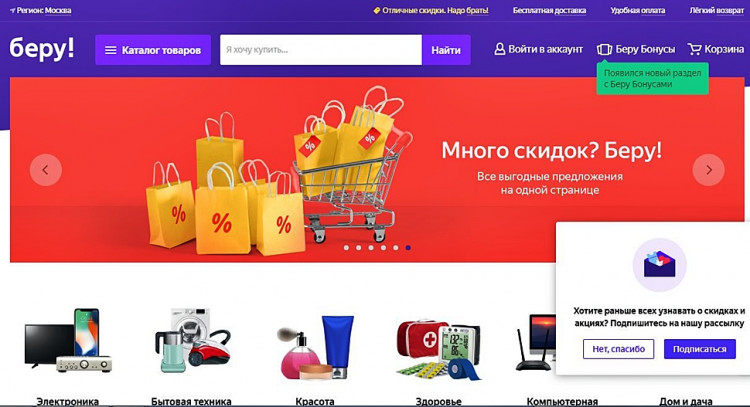Russia's largest bank and its largest search engine have joined forces to establish "Beru," an online marketplace its founders have ambitions of transforming into the Amazon of Russia.
Beru is the offspring of state-owned Sberbank, the largest bank in Russia and Eastern Europe and the third largest in Europe, and Yandex, the largest tech firm and search engine in Russia. The partners jointly invested $1 billion to get Beru off the ground and into the ring against AliExpress Russia.
Sberbank will fund the construction of Beru's warehouses. On the other hand, Yandex is giving Sberbank half of Yandex. The market, a price comparison platform that links to external businesses. Sources said Beru is part of Sberbank's efforts to diversify out of its bread and butter financial services business.
AliExpress is a $2 billion venture between Alibaba Group and Mail.ru, the search rival to Yandex in Russia. It now controls 69 percent of Russia's e-commerce market, which will be a tough nut to crack for Beru.
Amazon hasn't entered Russia due to simmering political tensions with the United States and mammoth logistical challenges.
Analysts said the entry of Beru, which was only launched on Sunday, means there will be real competition in Russia's online marketplace. For Sberbank and Yandex, their investments in Beru give them a shot at dominating e-commerce in Russia. Beru is the Russian verb for "take."
Studies have shown e-commerce in Russia is poised for explosive growth, given online retail accounts for only 3 percent of total consumer spending. This figure compares poorly to the 18 percent consumer online spending in the United Kingdom.
Beru's website will feature 1,000 individual sellers from Yandex. The goods it sells will be dispatched by couriers from a fulfillment center in Moscow. Most orders placed in Moscow will be delivered the next day.
Beru will provide free delivery nationwide on purchases costing more than 3,500 rubles ($53). Customers can also pick up the packages at one of the 16,000 plus Sberbank branches across Russia.
Beru will offer nearly 100,000 different products online. It will first sell consumer electronics, home appliances, diapers, and pet products. It will sell many quick-turnover products through private label brands. The platform will also help match buyers and sellers of less common items for a commission of about 10 percent.
Russia has an internet penetration rate of more 70 percent. On the other hand, e-commerce transactions will only account for 3 percent of the country's total retail transactions in 2018. The slow and halting adoption of online shopping is caused mainly by the absence of a cohesive logistics network across the massive country that spans Europe and Asia.






